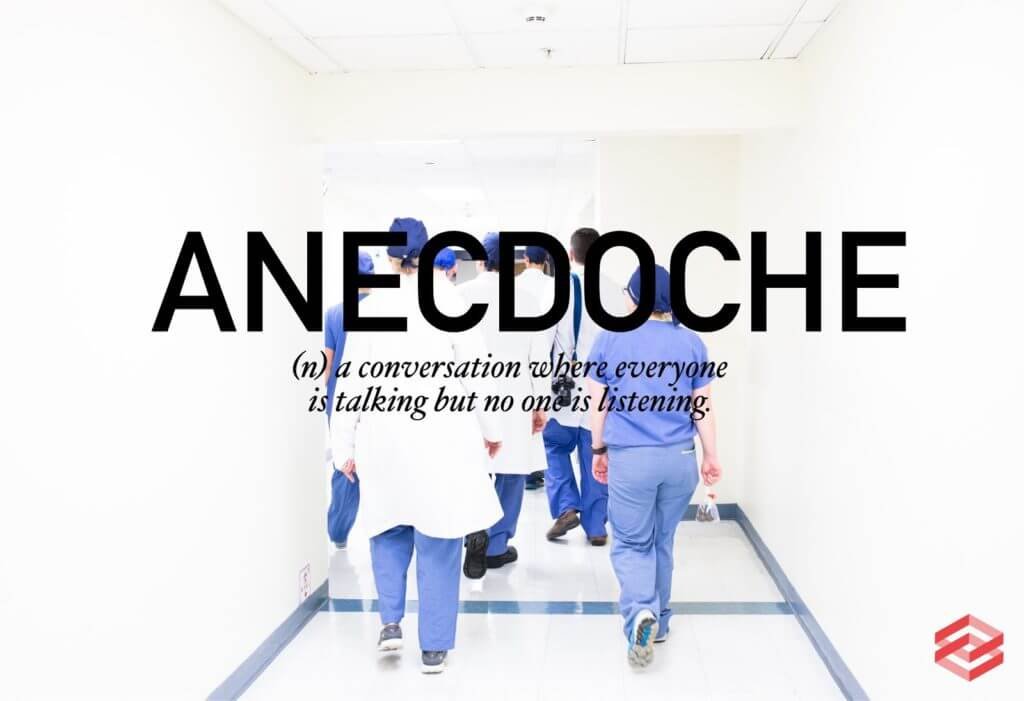
FAQ About Inonde’s Business In A Box
Q. I already have a database but it doesn't meet my needs. Can you migrate my data to a new Quintify database?
Yes! Most businesses that have been around for a while already have data in legacy systems, databases, and/or spreadsheets, and we've done data migration for many of our clients. (Ask us about the massive AS400 system migration we did! If we can do that, we can do what you need done.) Specifically, we have no trouble at all migrating data from MS Access and other common databases, MS Excel and other spreadsheets (and any data that can be exported into spreadsheet format), SugarCRM, Quickbooks, ACT, and other systems. We can migrate your data.
Q. Can I import my Excel spreadsheets into a Quintify database?

Why Inonde?
We've built a database generator that allows us to quickly build very powerful, extremely customized systems that would typically take a team of programmers many, many months to complete. We can often have you up and running on the intial release of your new database in less than a week, with plenty opportunity of for revision and tweaking once you and your team have had a chance to use it some. And your system will grow with you -- we can easily and quickly add new functionality whenever the need arises.

You know you need a database when...
you have people in multiple locations and are trying to get much of anything done that requires coordination of effort
two different people end up doing the same task
you've got an engineering spec in front of you, but you're not sure if it's the latest version
you are behind in shipping orders, and you're not sure why
you'd like to test some marketing promotions but don't have a way to track response
you're trying to run your business on Microsoft Excel (and sticky notes)
you're paying someone to file and fetch customer folders

Ten Things to Look for in a Database
multiple users, each with needs-based permissions; ability to have people in multiple locations
web-based, can access from anywhere - in today's world there's no reason you can't access your business's database from anywhere - heck in on things while on vacation in Hawaii
security (logins, role-based permissions, an established platform, things that need to be encrypted are encrypted, capability to open up part of your database to customers or vendors while restricting their access to everything else)

Eight key benefits of having a great database
A database can reduce lots of complexity (flailing and endless spinning of wheels) in a business -- the status of everything is no longer unknown or known only to a few. With a good database, all of your business's key info is in one and only one place, meaning that no one has to wonder if what they're looking at is the latest, most up-to-date info, or if the info they are seeking might be found if they look hard and long enough.
With a good database, everyone knows where to find the information they need at the moment they need it.

Three Main Ways Small Businesses Use Databases
Three Main Ways Small Businesses Use Databases:
Process management (transactional database) e.g. multi-step order fulfillment
A place to store important info (information store / data warehouse) e.g. customer contact info and order history

What Healthcare Has to Learn from Sean Connery
The 1990 classic action film The Hunt for Red October provides a lot of great scenes and one liners. One, in particular, has always stuck with me: the moment when Connery’s character, Russian Submarine Captain Marko Ramius, directs his crew into a narrow passage on the ocean floor and they clearly think he is insane. The film cuts between different clips of the crew members becoming more and more nervous. Ramius gives precise instructions and navigates them through troubled waters. The solution was relatively simple: know your environment, trust your instruments, and align the organization.
What does that have to do with healthcare and data?
Knowing your environment.

Everyone is Talking, but No One is Listening…
In 2017, the United States spent $3.5 trillion, 18% of our GDP, on healthcare expenditures. That comes out to almost $10,000 per person, which is twice the spending of other developed countries.
And yet our healthcare falls short on a global scale. In fact, some lists rate the United States healthcare system as the 37th best in the country. So much spending, but so little results. Why?

SURVIVING A TSUNAMI – Why data matters in Insurance
I recently sat down with David Simon, the Founder of Inonde, to talk about the company and his views on the impacts of unstructured data, big data, and analytics in insurance.
So far as 10 years ago, almost 40% of insurers already recognized the real-world applications of projects like ‘big data.’ That number jumped to 74% in 2012 and has continued to skyrocket. Insurance companies have actually been outpacing their cross-industry peers in their ability to use analytics to a competitive advantage. They invested $2.4 billion in big data in 2018, and that number is expected to increase to $3.6 billion by next year.
However, big data is not as simple as it seems. Simon was actually leading a team at a Fortune 500 company when the ‘Big Data Boom’ hit the industry, and he let me in on a little secret behind all those great solutions: they didn’t get it all right.

Data is King – Insurance and the Modern Monarchy
In 1996, Bill Gates said that “content is king.” Then he predicted a viral pandemic during a TED talk five years before it happened. Bill is a smart guy and while he was terrifyingly accurate about the pandemic, we think his quote about content may be a bit outdated.
New technologies like apps and sensors are all around us and the “Internet of Things” is more like our “Life of Things,” recording and reporting on us every minute of every day. Nowadays, digital applications are available to help us manage almost every aspect of our lives.
The constant in all this is not the “content.” It’s the data.

Freeing Your Data and Revolutionizing the Insurance Industry
Freedom is important in the United States. We are free to speak our minds, to publicly share our ideas, to assemble and protest unfavorable outcomes, and to celebrate a religion of our choosing. We are free to be individuals.
With individuality comes innovation. From how we buy homes to how we protect homes, we are living in an era of technological change. Social media, shopping sites, and analytic services are altering the way we think about our communities. Artificial intelligence and big data have transformed the way we live our lives. As other industries adapt, so should insurance. It’s time for a revolution.
There are a few key drivers for insurance industries to implement the use of big data and big data analytics. Big data can provide insurance firms with valuable insight, and analytics can transform that insight into action.

Jazzing Up the Healthcare System
Originating in the early 19th century, jazz is a free-spirited and spontaneous form of music that places a heavy emphasis on musicians finding their own unique sound and style. Instead of reading music from a score, they make it up as they go along. Jazz has transformed lives, business, and the world. It provides the opportunity for creativity and is unceasingly inventive.
Inventiveness is critical to the future of healthcare. It is time to pick up the sax, find our creativity, and develop a unique style of handling health data. In the wake of the global pandemic, there is so much information in a wide variety of formats. Siloes are being erected unintentionally in the name of sharing data faster.
As healthcare continues to evolve and becomes more consumer-centric, the significance of value-based care increases. We all know health insurance has a critical role to play. This is a unique opportunity to come together and do more than just ‘gamify’ our Fitbits, sensors, and company health incentive checklists. We can encourage healthier lifestyles, make use of personal data, deliver insightful individualized health analytics, and drive down costs as we apply machine learning and AI for the betterment of society.
But how?

Using 100% of Your Brain and 100% of Your Data
Are you familiar with the myth that we only use 10% of our brains? We know this is not actually the case, but that has not stopped the production of movies like Luc Besson’s Lucy. The premise is that chemical compounds combined in the right order increase our ability to use a higher percentage of brain power. If everyday people could use that extra 90% of their brains, they would develop super-photographic memories or cool capabilities like levitation and telekinesis.
We know this is not the case. The idea is so wrong it is almost laughable, according to neurologist Barry Gordon at Johns Hopkins School of Medicine in Baltimore. He goes on to say that we use almost every part of our brain all the time.
Sadly, when it comes to data, this is not the case. Imagine what we could do if used data the way Dr. Gordon says we use our brains.

Why Healthcare Needs to Leave the Pareto Principle in 1896
In 1896, Vilfredo Pareto defined something known as “the Pareto Principle.” This is the idea that 80% of consequences result from 20% of causes. While this is more observation and less scientific fact, we can see evidence of the Pareto Principle all around us. Healthcare is a great example. Health data comes in a variety of different forms: electronic records (HER / EMR), sensors tracking our vital signs, lab results, physicians notes, patient-generated data (from cell phone applications or wearable technologies), various types of imagery (MRIs, x-rays, and medical photography, etc.), and even simple things like patient surveys and sign-in sheets at the reception desk. All these different inputs are constantly providing healthcare companies with more data; however, it tends to be ‘unused.’ From hospitals to private practice, and insurance companies to our government, they are all trying to figure out what to do with it.
What if I told you that 80% of healthcare data remains untapped and unmanaged?

One Small Step for Lawyers, One Giant Leap for Law
On July 20, 1969, the United States put the first man on the moon. “That’s one small step for a man,” he said. “One giant leap for mankind. And then, in May of 2020, Elon Musk made history by launching astronauts into space from U.S. soil for the first time in nine years. Space exploration embodies the American spirit of discovery, the possibility of boldly facing new challenges “not because they are easy, but because they are hard.” Why is it we put such large quantities of effort, time, ingenuity, and money towards the discovery of space but have not applied that same spirit to our data? Why have we not made the “giant leaps” necessary to forever change the lives of those impacted by data?
